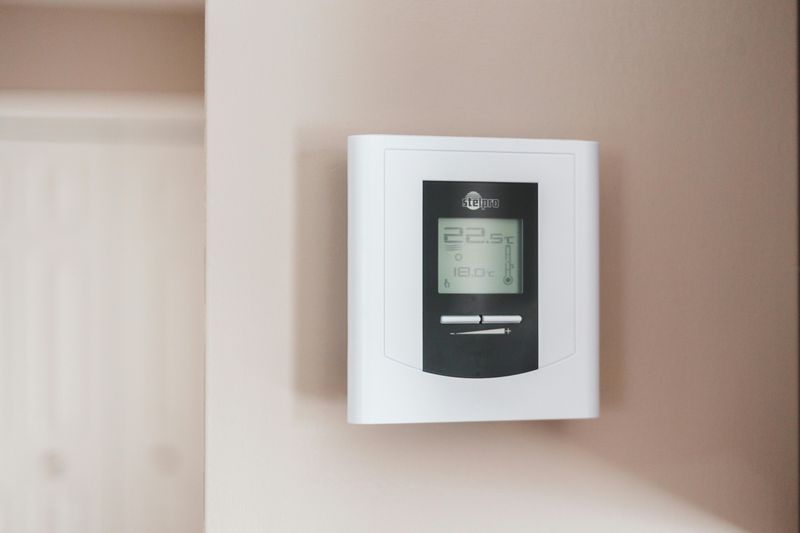Getting quality sleep doesn’t require major lifestyle changes. Small adjustments to your evening routine can dramatically improve how quickly you fall asleep and how restful your night becomes. These simple tweaks signal to your body that it’s time to wind down, helping you transition naturally from daytime energy to nighttime rest. Try these easy changes tonight and wake up feeling refreshed tomorrow.
1. Dim the Lights Early
Brightness levels directly impact your brain’s production of melatonin, the hormone that controls your sleep-wake cycle. When you lower your lights about an hour before bedtime, you’re essentially telling your brain, “Hey, it’s almost time to sleep!”
Try replacing harsh overhead lighting with soft lamps or dimmer switches in the evening. Even candlelight can create a peaceful atmosphere that encourages drowsiness.
2. Shut Down Screens
Electronic devices emit blue light that tricks your brain into thinking it’s still daytime. This sneaky light suppresses melatonin production and keeps your mind buzzing when it should be settling down.
Make your bedroom a tech-free zone starting 30-60 minutes before sleep. Replace scrolling with reading a physical book or listening to calming music.
Can’t completely avoid screens? Use blue light filters or special glasses that block the sleep-disrupting wavelengths. Your eyes—and your sleep schedule—will thank you.
3. Keep a Consistent Bedtime
Your body thrives on routine. Going to bed at the same time nightly strengthens your circadian rhythm—your internal clock that regulates sleep and wakefulness.
Pick a reasonable bedtime that allows for 7-9 hours of sleep before your morning alarm. Stick to this schedule even on weekends for best results.
After a few weeks of consistency, you’ll likely start feeling naturally drowsy at your chosen bedtime. This happens because your body begins preparing for sleep by releasing hormones and lowering your core temperature at the right time.
4. Sip a Calming Tea
Certain herbal teas contain natural compounds that gently relax your nervous system. The ritual of preparing tea itself signals to your body that day activities are winding down.
Chamomile contains apigenin, which binds to brain receptors that decrease anxiety and initiate sleep. Lavender, valerian root, and passionflower teas offer similar benefits.
Avoid adding sugar, which can counteract the calming effects by giving you an unwanted energy boost.
5. Stretch or Do Gentle Yoga
Gentle movement before bed releases physical tension that might keep you tossing and turning. A 10-minute stretching session targets tight muscles that have accumulated stress throughout the day.
Focus on slow, deep stretches rather than energizing poses. Forward folds, gentle twists, and child’s pose are particularly effective for signaling relaxation to your nervous system.
Combining movement with deep breathing creates a powerful relaxation response. The combination lowers cortisol (the stress hormone) and prepares both body and mind for deep, restorative sleep.
6. Journal for 5 Minutes
Racing thoughts can sabotage sleep before your head even hits the pillow. Transferring swirling worries from mind to paper creates mental space and emotional relief.
Gratitude journaling specifically shifts focus from problems to positives. Simply listing three good things from your day can lower stress hormones and improve sleep quality.
No need for elaborate writing—bullet points work perfectly. The act of writing engages different brain pathways than thinking, helping your mind process and release the day’s events instead of replaying them during precious sleep hours.
7. Lower the Room Temperature
Your body temperature naturally drops as part of the sleep process. A cool bedroom environment—between 60-67°F (15-20°C)—helps trigger this biological signal for sleep.
Overheated rooms cause restlessness and disrupt your sleep cycle. Programming your thermostat to automatically lower temperatures at night saves energy while improving sleep quality.
8. Use a Sleep-Friendly Scent
Aromatherapy taps into your brain’s emotional center through your sense of smell. Certain scents trigger the release of relaxation chemicals that prepare your body for sleep.
Lavender stands out as the superstar of sleep scents. Research shows it lowers heart rate and blood pressure while improving sleep quality. Eucalyptus clears breathing passages, while sandalwood creates grounding feelings of calm.
Try a pillow spray, essential oil diffuser, or sachet tucked into your pillowcase. Just ensure any electrical diffusers have auto-shutoff features for safety during sleep.
9. Do a “Brain Dump” List
Midnight worry sessions often revolve around tomorrow’s tasks. Creating a next-day to-do list before bed gives your brain permission to relax—it knows you’ve captured important tasks externally.
Unlike regular journaling, a brain dump focuses specifically on action items. Write down everything from major work projects to small reminders like “buy toothpaste.”
The physical act of transferring responsibilities from mind to paper signals completion to your brain. This simple practice reduces sleep-disrupting anxiety by reassuring your mind that nothing important will be forgotten overnight.
10. Avoid Heavy Snacks or Caffeine
Late-night eating forces your digestive system to work overtime when it should be slowing down. Your body diverts energy to digestion instead of the important restoration work that happens during sleep.
Caffeine has a surprisingly long half-life—the time it takes your body to eliminate half of it—of about 5-6 hours. That afternoon coffee can still be disrupting your sleep hormones at bedtime.
If hunger strikes before bed, choose small, sleep-promoting snacks like a banana with almond butter or a small handful of cherries, which naturally contain melatonin.
11. Read Something Light
Reading fiction transports your mind away from daily stresses into another world. This mental shift breaks the cycle of worry or planning that keeps many people awake.
Choose material that’s engaging but not overstimulating. Mysteries, thrillers, or work-related reading can increase alertness—the opposite of what you want before sleep. Opt for light fiction, poetry, or familiar favorites instead.
Paper books are preferable to e-readers, which emit sleep-disrupting blue light. Just 6-10 pages often creates enough mental diversion to ease the transition into natural drowsiness.











